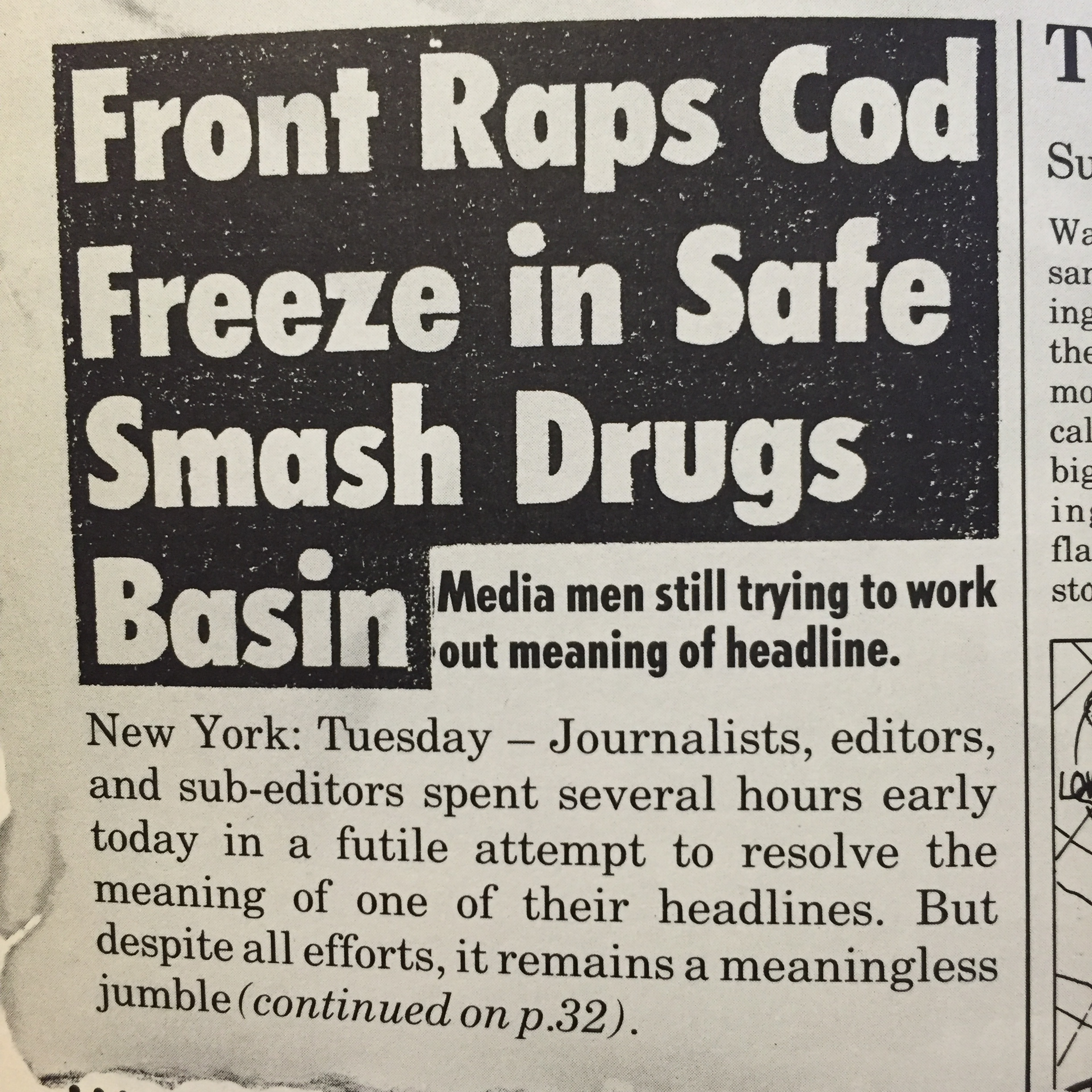"Pilot Fish Project English Channel crossing bid begins", BBC 8/5/2016. Turns out this is two French guys aiming to cross the channel in a home-made pedal-powered submarine:
Two men attempting to cross the English Channel in a pedal-powered submarine have begun their journey. French engineers Antoine Delafargue, 33, and Michael de Lagarde, 36, plan to travel 135 nautical miles (250km) from Plymouth to St Malo. The vessel, which the pair designed and built themselves, left on Friday, travelling at 3km/h (1.86mph), a spokesman told the AFP news agency. Their trip is expected to take seven days.
John Coleman, who sent in the link:
A record? Pretty much totally opaque to me.
He means for consecutive nouns in a headline, I think, not distance traveled in a home-made pedal-powered submarine. Though presumably that will also be a record.
Read the rest of this entry »



